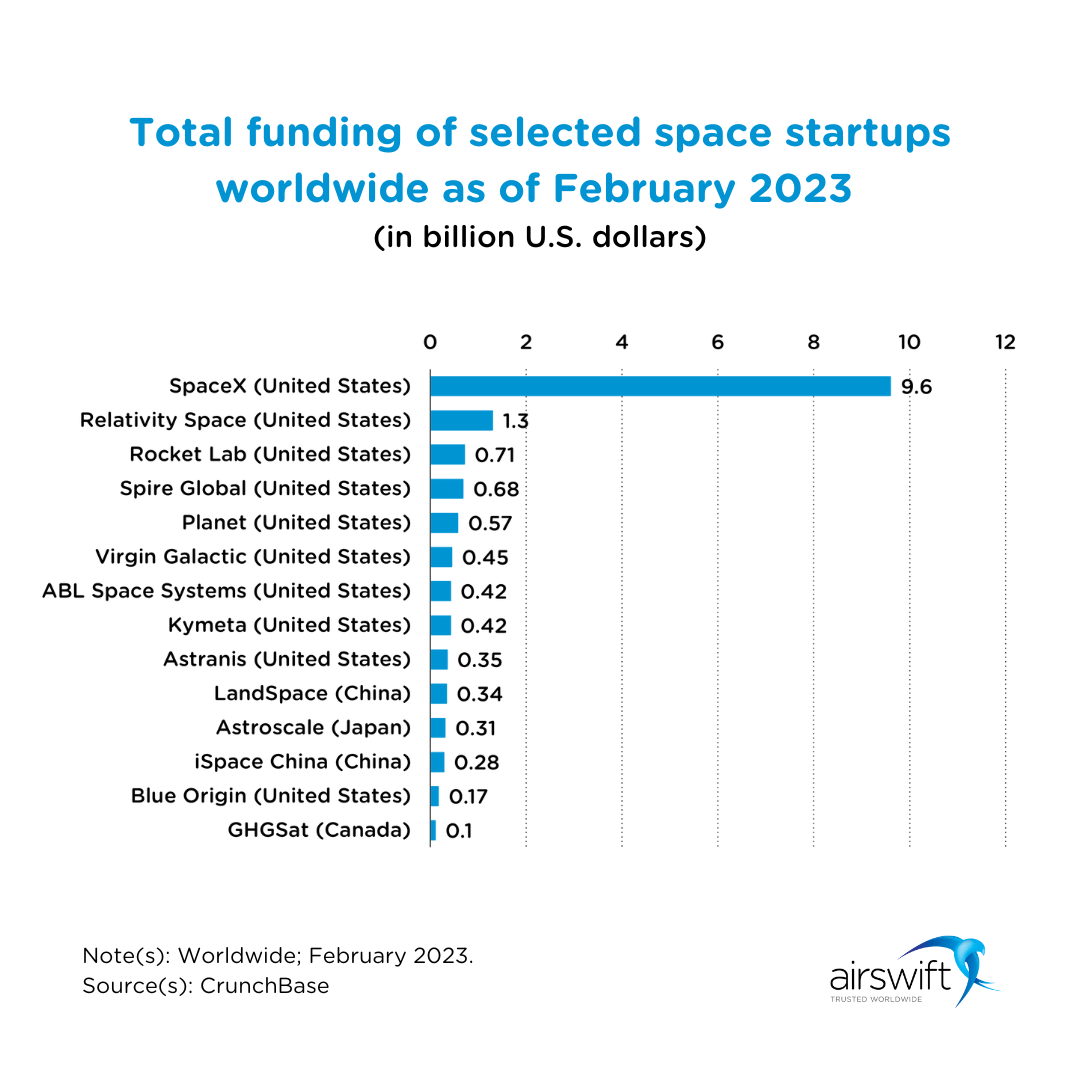By
Marc Jitab
October 19, 2021
Updated
September 20, 2023
Source: Frame Stock Footage/Shutterstock
Amid a fierce talent war, space technology companies need to take their software talent sourcing to the next level to reach new frontiers...
In the popular imagination, the image of modern-day software talent is ensconced in multibillion-dollar Silicon Valley companies, with its casual dress code, well-stocked cafeterias, beanbag conference rooms and kegerators.
But while technology giants like Facebook, Google, Amazon, Apple and Microsoft are well-known for being magnets for the brightest software engineers on the planet today, the term “software engineering” was birthed during NASA’s Apollo program in the late 1960s.
- Software leads the talent gap in space
- Gain the competitive edge in the New Space talent race
- Here’s how Airswift can help your space technology company gain a competitive advantage
3.1. Locate the best people based on your criteria
3.2. Advise companies on how to best ‘sell’ the job
3.3. Continually provide clients with the best resources to keep their talent pipeline active - Are you ready to advance in the New Space race?
According to NASA, the term was coined by the Apollo mission’s lead software designer, Margaret Hamilton, who was instrumental in getting Apollo 11 astronauts safely to the moon and back to Earth.
The space race of the 1960s brought great enthusiasm and promise as humans looked towards the stars as a literal and metaphorical beacon of light.
Today, humans find themselves at a new juncture in space travel
New Space — the rapid private sector commercialisation of space technology — is making the first steps into interplanetary travel, heavy manufacturing in space and asteroid mining. Private companies now have the autonomy to launch their own space programs without much government intervention.
This has led to an increase in attention from venture capital investors in the startup space, as evidenced by the funding that this market is receiving.

In line with this, the talent in the market has also shifted toward the private sector which offers better pay, packages and development opportunities.
But despite being essential to space technology, software engineers are becoming a rarity in the sector, with the demand for talent fast outstripping its supply.
This is happening even though, much like Margaret Hamilton, software engineers are critical in making satellite launches, guidance and navigation, and deorbiting a reality.
Today’s technology talent war is pulling STEM talent in many directions. It’s never been more crucial for space technology leaders to stand out and make their companies and jobs ever more appealing to software engineers.
Software leads the talent gap in space
At a time when planned satellite constellations require high-quality software to enable precision navigation and control — as these satellites are only mere kilometres apart while travelling speeds over 7 kilometres (4.3 miles) per second — this could not be worse news.
The problem is significant enough for space sector stakeholders to sound the alarm over the impending talent shortage for software engineers in the space industry.
 Source: Gorodenkoff/Shutterstock
Source: Gorodenkoff/Shutterstock
According to the Space Sector Skills Survey 2020 produced by the UK Space Agency, 52% of space companies in the UK reported a lack of software engineering talent — representing the most significant technical gap in this sector.
While the companies surveyed were optimistic about the growth of software capabilities in the coming years, a vast majority also expect that hiring would be either “somewhat” or “very” difficult.
“The shortage of software, rather than hardware, skills is potentially becoming a source of UK space industry disadvantage.” - UK Space Agency.
Much of the same can be said about the situation in the United States, where software engineers are being drawn to terrestrial high-tech companies, away from the Department of Defense, NASA and other aerospace and defence companies.
That is why authors Bill Beyer and Mary Lynne Ditmar further argue that such gaps may cause countries to cede their national security edge in space, which is the ultimate high ground advantage.
From this vantage point, software engineers play a crucial role in making earth observation and geospatial intelligence gathering possible, which have implications in both the public and private sectors.
Gain the competitive edge in the New Space talent race
It has become clear that space technology companies need the right talent partner to keep the pipeline of software talent actively flowing.
“Airswift has a vast candidate pool of expert STEM talent, with a reputation of placing the best people in their industries. We certainly know what it takes to fill even the most esoteric of roles within STEM fields,” says Alex Stanforth, a Research and Business Development Consultant at Airswift.
“The space technology market is no different, with a surplus demand for talent facing a shortage of supply in the market — but we know that there are certainly ways to bridge this gap.
There is now a real excitement to work in the space industry, and therein lies the opportunity to capitalise on this by bringing in the best software engineers from other fields.
Meeting the demand for talent would see the New Space sector grow, which would wield a higher interest from academia to pursue software engineering in the space sector in the long term.” - Alex Stanforth, Research and Business Development Consultant at Airswift.
Here’s how Airswift can help your space technology company gain a competitive advantage
1. Locate the best people based on your criteria
Beyond C, C#, C++, Ruby, Perl, Python, Go, Kubernetes, MatLab and LabView, we understand that a good software engineering team needs talent with the right technical and cultural fit to succeed.
That’s because Airswift is well-versed in the needs of the AI and ML worlds and has significant experience in hiring for the technology industry, whose software talent stacks translate well to the requirements of space companies. With offices in over 70 countries, we can draw from a talent pool that’s much, much larger than your zip code.
2. Advise companies on how to best ‘sell’ the job
Awareness is a key issue on both sides of the aisle.
Some software engineers are not aware of the space industry as an attractive career option. Meanwhile, space technology companies may be unaware of what organisational structures, compensation plans, and challenges attract software engineers.
After we audit and understand your organisation’s skills needs for growth, we will work to enhance and promote your unique selling points. This ensures that you are attracting top talent.
We will also advise you on how to improve your working culture to boost retention and make your organisation a better place to work.
3. Continually provide clients with the best resources to keep their talent pipeline active
As our valued clients, space technology companies enjoy continual updates on the evolution of the software talent pool and access to talent acquisition specialists that can help quickly scale up their software engineering teams when the need arises.
This service de-risks your talent search even as you better understand the sector and how your challenges compare with your competitors.
Our service provides expert-led research into both the talent market and each candidate. We are keen to understand as much as possible about each client and opportunity so that we can find the best people that would perfectly tailor each role.
Are you ready to advance in the New Space race?
Get started on expanding your software engineering team today by contacting us today

